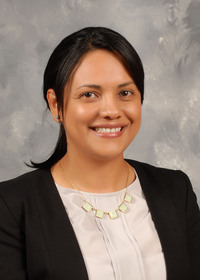Information Possibly Outdated
The information presented on this page was originally released on May 2, 2018. It may not be outdated, but please search our site for more current information. If you plan to quote or reference this information in a publication, please check with the Extension specialist or author before proceeding.
Extension Service offers local economic profiles
STARKVILLE, Miss. -- Massive quantities of local economic, community health and retail data gathered and organized help the Mississippi State University Extension Service fulfill its mission of extending knowledge and changing lives.
Alan Barefield, Extension economic development specialist, oversees the process of gathering retail, health and economic data from sources that include the U.S. Census Bureau, the Bureau of Economic Analysis and several proprietary data sources. The team analyzes this data and provides information to Mississippi counties and towns.
“Annually, we compile a county profile package that includes retail profiles, general economics and health economics profiles, as well as a city/town profile package for retail sales analyses, and make them available on our website,” Barefield said. “These profiles give communities more up-to-date data and information than they could typically gather on their own.”
This information is available to local and state government officials, economic development agencies and organizations such as the local Chambers of Commerce. It is available to all interested people in the community and is also given to the U.S. Congressional delegation.
“Economic development officers use this information to build their case to recruit a business or to identify issues inherent in assisting start-up businesses, as well as helping the community retain their existing businesses,” Barefield said. “They use this information to identify economic clusters in their area and what their retail picture looks like. They can use this information with other sources to identify areas where their economic growth efforts should focus.”
Barefield said it takes about three weeks to analyze data for the retail profiles, and these are typically released in February or March. Health and general economics profiles take more than a month to compile once information is available, and these are usually ready by July.
Information contained in these reports is presented in digestible formats, and feedback each year guides what is included in the reports. This year marks the sixth year the MSU Extension Service has provided these profiles.
Mississippi Development Authority executive director Glenn McCullough, Jr. said his agency uses the information to help counties and communities determine what areas to focus on with their economic development efforts.
“Many times a community may not realize they’re losing business in certain areas, but doing a good job in others,” McCullough said. “This information helps them identify where to devote their efforts.”
Once the data is used to identify areas that need improvement, that community can go after specific industries to fill their need.
“We see the counties and communities we work with use this targeted information to attract new businesses to their area,” McCullough said. “It guides their leadership in what they need to do for their community’s economic health.”
Find these retail, health and general economic profiles online at http://extension.msstate.edu/economic-profiles.








